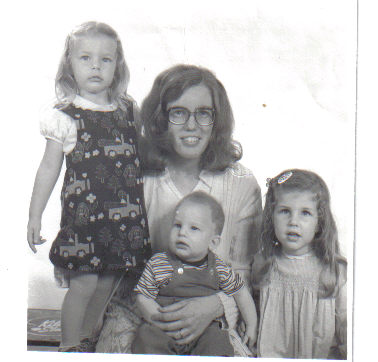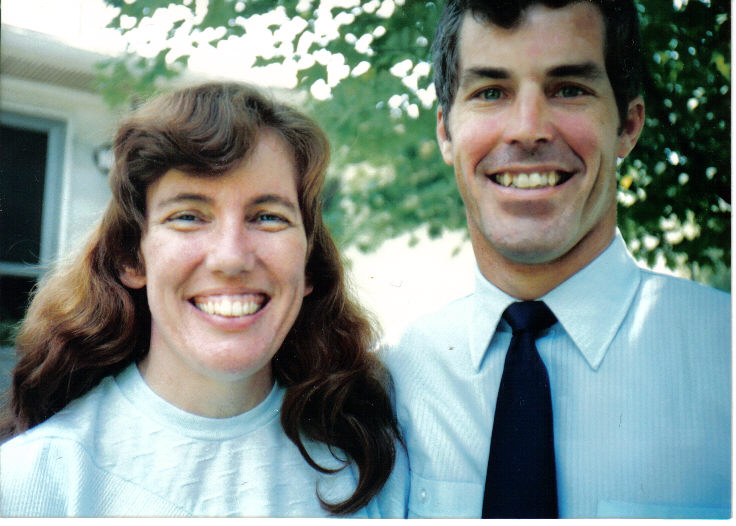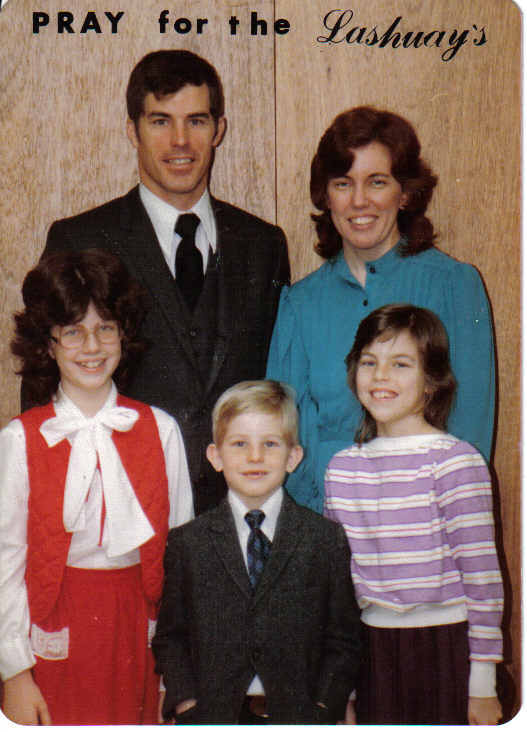“When shadows fall and the night covers all, there are things that my eyes cannot see. … When I’m alone and I face the unknown, and I fear what the future may be …”
Hymn: “How Can I Fear” by Ron Hamilton, Majesty Music, 1984
These are such fitting words for such a time as this. Uncertainty looms heavily upon our every thought as though a dark storm cloud has set in. The “What If” monster knocks at our door bringing thoughts of fearful possibility though unrealized. But what if it does happen to me or to someone I love?! How could I ever move on?
What do you do with thoughts like these? What do you do in times like this? What can you do? Do you start to wonder if God is still there? …if He cares or has He just forgotten about you?
This past Sunday, I preached to an empty church. Pews normally filled with laughter and smiles were quiet and cold. Where souls normally sit in anticipation of how God would minister to their hearts, the air was still and lifeless. It is a sign of the time we find ourselves in. I found it difficult to preach God’s precious Word to a camera. What gave me encouragement was knowing that those same faces that normally fill the sanctuary were still there. They were waiting, watching, and listening in anticipation of how God would minister His precious Word to their hearts, albeit through the lens of a screen. I love this privilege that God has given me to minister His Word to souls who love His Word just as much as I do and also to those who need it just as much as I do. I stepped forward—I pressed on… this message of the “Peace in the Storm” is a message of hope and love. It is a message of life and truth. It is a message of calming rest to noisy souls that are faced with uncertainty.
The battlefield of the mind is filled with pathways of thought upon which we have repeatedly walked. These are often debilitating thoughts, tempting us to doubt God’s love and goodness promoting defeat instead of leading us to victory. Far too often, in trials, we find ourselves wandering these heavily worn paths of “what if” questions with no answers.
“What IF” vs. “What IS”
The “What IF” Monster of Terror needs to be replaced with the “What IS” Minister of Truth. The “what if” monster brings a message of fearful unknown possibilities while the “what is” minister brings a message filled with stabilizing realities. The first looks outward in anxious fearfulness while the second looks upward in fearless faith. The first leaves us often paralyzed in doubt and worry leading us to anger and despair, feeling that everything is out of control while the second meets us with hope, encouraging us to press on, trusting the One Who controls the storm.
The second verse and chorus of the hymn, “How Can I Fear” by Ron Hamilton, read,
When I’m alone and I face the unknown, and I fear what the future may be, I can depend on the strength of my Friend—He walks along with me.
How can I fear? Jesus is near. He ever watches over me. Worries all cease; He gives me peace. How can I fear with Jesus?
The Invitation that brings Peace
Consider Jesus’ words in Matthew 11:28, when He says,
“Come unto Me, all ye that labour and are heavy laden, and I will give you rest.”
Those who “labor” are worn out feeling beaten down by the storms of life. Those who “are heavy laden” are overburdened by the cares and concerns of this life. The seemingly never-ending beatings and burdens of life wear us down. The uncertainty of “when will this end?” or “will I or a loved one get sick?” or any other host of concerns oppress us like a hovering raincloud of cold, dreary darkness.
Those who “labor” are worn out feeling beaten down by the storms of life. Those who “are heavy laden” are overburdened by the cares and concerns of this life. The seemingly never-ending beatings and burdens of life wear us down. The uncertainty of “when will this end?” or “will I or a loved one get sick?” or any other host of concerns oppress us like a hovering raincloud of cold dreary darkness.
This word, “rest,” carries the idea of quietness. It literally means to cease. There is relief in this word similar to the moment you pillow your head at night, exhausted from the day, and you simply breathe out a sigh of relief realizing you made it through another day. When we are being terrorized by the “what if” monster there is no rest—there is no quietness as we strive to make sense of life without God or we seek to control the storm. Jesus is saying that when we receive His invitation, He will give us “rest” because we cease from our efforts of trusting in ourselves as self-sovereigns. In this verse, we see the rest given in salvation. Jesus’ kind of “rest” is found in reliance upon Him. This “rest” can only be enjoyed when someone fully places their faith and trust in Jesus as their Savior. The next verse clarifies that this “rest” is of the soul. To find this “soul rest” is to be free of the burden of the penalty of sin. Notice that this “soul rest” is a gift that cannot be earned.
Paul wrote to the saints in Rome about this precious gift saying,
“For the wages [what is earned because] of sin is death; but the gift of God is eternal life through Jesus Christ our Lord” (Romans 6:23).
Later in this letter, Paul states,
“That if thou shalt confess with thy mouth the Lord Jesus, and shalt believe in thine heart that God hath raised Him from the dead, thou shalt be saved. For with the heart man believeth unto righteousness; and with the mouth confession is made unto salvation” (Romans 10:9-10).
It is important to understand that this relationship with Jesus Christ is where true “soul rest” begins. If you have never placed your faith in Christ alone for your salvation, please consider doing this today.
Jesus stated, the night before He died that He would give His followers His kind of peace. He said,
“Peace I leave with you, My peace I give unto you: not as the world giveth, give I unto you. Let not your heart be troubled, neither let it be afraid” (John 14:27).
The world’s peace is the absence of conflict or struggle. It is a lack of war where everybody gets along. This would be great but this isn’t what Jesus is speaking of. He understands human nature in that as long as we are filled with pride, demanding our own way, there will always be conflict. Solomon spoke of this in Proverbs 13:10 writing,
“Only by pride cometh contention: but with the well advised is wisdom.”
Jesus speaks of a different, other-world kind of peace. It is a peace that transcends our troubles. It is a peace in midst of our trials. It is a peace that doesn’t make sense as it transcends our ability to understand it.
Notice what Jesus continues to say in His invitation in Matthew 11:29. He says,
“Take My yoke upon you, and learn of Me;” He is saying, “follow My example; for I am meek and lowly in heart.”
Keep in mind that one who is “meek and lowly” is gentle and humble. In contrast to pride, which demands its own way, humility submits to God’s way. It yields to Him as the sovereign authority over one’s life instead of fighting for control.
Do you see the promise Jesus makes to those who yield in obedience; He says, “and ye shall find rest unto your souls.” Soul rest is the kind of quiet inner peace that one can have in the midst of any storm. It is an inward tranquility that is not based upon our circumstances but is rooted in the unchanging stabilizing truths of God.
The prophet Isaiah wrote,
“Thou wilt keep him in perfect peace, whose mind is stayed [or fixed] on Thee: because he trusteth in Thee. Trust ye in the LORD for ever: for in the LORD JEHOVAH is everlasting strength” (Isaiah 26:3-4).
This soul rest that Jesus speaks of—His kind of peace—comes through diligence in meditating upon Who God is and Who He is to me. This is the kind of peace that Paul speaks of in Philippians 4:6-7 where he calls it “surpassing” or transcendent “peace.”
The Prayer that brings Peace
In these verses he gives us the Biblical principle for peace which contains a precept to be obeyed and a promise that we can enjoy as a result.
He first states the precept that we are to follow in obedience. He says, “Be careful [anxious] for nothing; but in everything by prayer [worship] and supplication [attitude of humility] with thanksgiving [attitude of gratitude] let your requests be made known unto God.” Paul tells us to not be anxious about anything but instead, pray about everything. He gives us this pathway of prayer that leads to Jesus’ kind of peace being a reality in our lives.
Notice the order that Paul lays out in this prayer. He first directs us to worship in prayer. Think of the Lord’s prayer where Jesus directs the disciples to begin prayer with worship saying,
“After this manner therefore pray ye: ‘Our Father which art in heaven, Hallowed be Thy name.’ ” (Matthew 6:9)
The profound impact of Biblical prayer is that it redirects our worship as it takes our eyes off of our circumstances and places them on our Almighty Creator Who sovereignly rules and reigns in righteousness. This prayer leads us to bow in humble worship in submission to our God Who
“is able to do exceeding abundantly above all that we ask or think, according to the Power that worketh in us,” (Ephesians 3:20)
We are to then pray with thankfulness which has a view of the past, present, and future. In this, we are reminded to be “thankful” for Who God is and what He had done for us while encouraging us to be “thankful” for what He is going to do through this difficulty that is tempting us to be anxious.
Finally, after our heart is redirected in worship, ruled in submission, and anchored in thankfulness, we are ready to ask—to
“let your requests be made known unto God.”
This helps us to avoid the pitfall of
“ask amiss [with wrong motives], that ye may consume it upon your lusts.” (James 4:3).
Paul then gives us the promise that we can enjoy when we obey the precept.
“And the peace of God, which [sur]passeth [transcends] all understanding, shall keep [guard] your hearts and minds through Christ Jesus.”
This is a beautiful, reassuring promise when we are confronted with the storms of life. The storm is not given to destroy us but to draw us closer to our great God. These trials and tribulations of life are meant to display the greatness of our God as He provides for our needs and He carries us through. It is God’s desire for us that we would enjoy His transcendent peace while the storm is raging.
Remember: to know God is to know peace.
William Cowper wrote, “God moves in a mysterious way! His wonders to perform; He plants His footsteps in the sea and rides upon the storm!
Hymn: “God moves in a mysterious way” by William Cowper
verse 2: Deep in unfathomable mines of never-failing skill, He treasures us His bright designs and works His sovereign will.
verse 3: Ye fearful saints, fresh courage take! The clouds ye so much dread! Are big with mercy and shall break in blessings on your head!
verse 4: Judge not the Lord by feeble sense, but trust Him for His grace; behind a frowning providence He hides a smiling face.
verse 5: His purposes will ripen fast, unfolding every hour, the bud may have a bitter taste, but sweet will be the flower!
verse 6: Blind unbelief is sure to err and scan His work in vain; God is His own interpreter and He will make it plain.”
The times of dark and daunting clouds are the times designed to lead us to joy as they break open and display the mercy and grace of God. The bud may have a bitter taste, but be assured that God desires to replace it with a sweet flower.
During these times “When shadows fall and the night covers all, there are things that my eyes cannot see” we need to heed the command of Paul to be anxious for nothing but pray about everything. Then we will be able to say, “I’ll never fear, for the Savior is near; my Lord abides with me. How can I fear? Jesus is near. He ever watches over me. Worries all cease; He gives me peace. How can I fear with Jesus?”
I’m so grateful for the truths of God’s precious Word! I am also grateful that God has gifted others to write these hymns of praise to minister to our hearts for such a time as this. May our faithful God keep His promise and give you His transcendent peace as you worship Him in humble prayer.









